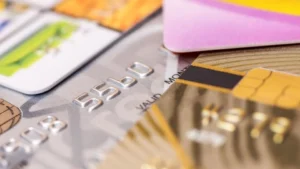Is it safe to lend your credit card in the U.S.? Understand the risks
Lending your credit card to a friend or family member may seem like a small favor, but in the U.S., this decision can have serious financial and legal consequences. Understanding the risks involved is crucial to protecting your credit score, financial security, and personal liability.
From unauthorized charges to fraud liability and disputes, sharing your card can open doors to problems you never anticipated. In this guide, we’ll explore the potential dangers, legal aspects, and safer alternatives to help you make an informed decision.
Risks of lending your credit card in the U.S.

Financial consequences and liability
When you lend your credit card, you are still legally responsible for all charges made, even if they are unauthorized. If the borrower overspends or refuses to pay, you’ll be left covering the balance, which could negatively impact your credit score.
Additionally, late or missed payments due to someone else’s negligence can lower your credit score and increase your interest rates. Issuers see late payments as a red flag, affecting your future ability to secure loans or better credit terms.
Beyond the immediate financial burden, lending your credit card can also complicate your personal relationships. If the borrower struggles to repay the debt, tensions may arise, leading to conflicts and strained trust.
Fraud risks and identity theft
Even if you trust the person borrowing your card, there’s always a risk of fraud. If they lose the card or expose your details to malicious parties, criminals can make unauthorized transactions, leading to potential financial loss.
Disputing fraudulent charges can be a complex and time-consuming process. While most credit card companies offer fraud protection, lending your card voluntarily may weaken your ability to dispute transactions. Some issuers may not offer protection if they determine the card was shared willingly.
Furthermore, if your card information is compromised, scammers can use it for online purchases, cash withdrawals, or even identity theft. Criminals may apply for new credit accounts in your name, damaging your credit history and creating long-term financial headaches.
Legal and contractual implications
Most credit card agreements explicitly state that the cardholder is responsible for all purchases made using the card. Lending your card may violate the terms of service, potentially leading to account suspension or the issuer revoking certain protections.
In extreme cases, legal issues can arise if the borrower uses the card fraudulently. If unauthorized purchases are made and disputes escalate, you could find yourself entangled in legal battles over liability and financial responsibility.
Alternative solutions to lending your credit card
Authorized user option
One of the safest ways to allow someone to use your credit line is by adding them as an authorized user. Most issuers let you set spending limits and track purchases, giving you control while extending financial flexibility to a trusted individual.
Authorized users can also build their credit history, which benefits them in the long run. However, if they miss payments or overspend, the primary cardholder remains responsible for the balance, so it’s essential to choose wisely.
Another advantage of adding an authorized user is that you can monitor their spending through online banking apps, allowing you to step in if any issues arise. Some banks even provide alerts for specific transactions, helping you maintain oversight while still offering financial assistance when needed.
Virtual credit cards for limited use
Many banks offer virtual credit cards, which generate temporary card numbers for specific transactions. These are an excellent alternative if you need to let someone make a one-time purchase without exposing your primary card details.
Since virtual cards have unique numbers and expiration dates, they minimize fraud risks. Once the transaction is complete, the card number becomes obsolete, preventing any future unauthorized use.
Virtual cards also provide better security when making online purchases, as they reduce the chances of your actual credit card details being stolen or misused. Many financial institutions offer these as part of their security measures, making them a practical choice for anyone looking to share payment access without taking unnecessary risks.
Prepaid and secured credit cards
Prepaid and secured credit cards are safer options for lending money without putting your credit at risk. With a prepaid card, you can load a specific amount, ensuring that spending is limited to what you’ve allocated.
Secured credit cards, backed by a security deposit, also offer a controlled way to extend financial assistance. These cards are particularly useful for individuals who need to build credit but may not qualify for a traditional credit card.
Additionally, prepaid cards work well for teenagers or young adults who need financial independence without the temptation of overspending. They eliminate the risks of accumulating debt while still allowing for controlled spending in emergencies or planned purchases.
Best practices to protect your credit card
Keep your card details private
Never share your credit card number, PIN, or security code with anyone, even close friends or family. Storing card details on unsecured websites or messaging platforms increases the risk of theft and misuse.
If someone urgently needs to make a purchase, consider handling the transaction yourself rather than giving them your card. This prevents unauthorized use and ensures you remain in control of your financial security.
Additionally, using secure payment methods such as contactless payments or digital wallets like Apple Pay or Google Pay can add an extra layer of protection. These services encrypt your payment details, reducing the risk of your information being stolen during a transaction.
Monitor transactions regularly
Set up real-time alerts with your bank or credit card issuer to track every transaction made with your card. Many banks offer mobile apps that notify you instantly when a purchase is made, allowing you to spot suspicious activity immediately.
Review your credit card statements monthly to ensure all transactions are legitimate. If you notice any unauthorized charges, report them to your bank as soon as possible to prevent further issues.
Another useful tip is to regularly check your credit report for any unfamiliar accounts or inquiries. Many financial institutions provide free credit monitoring services that alert you to potential fraud, helping you stay ahead of any threats to your financial security.
Use credit card protections wisely
Most credit cards offer fraud protection, but policies vary. Some issuers may not cover unauthorized charges if the card was willingly shared. Always read the fine print and understand your card’s protection terms before making decisions.
If you suspect fraudulent activity, contact your bank immediately. Many issuers provide zero-liability protection, but timely reporting is key to securing reimbursement for unauthorized transactions.
It’s also a good idea to use cards with enhanced security features, such as two-factor authentication and card-locking options. Some banks allow you to temporarily freeze your card if you suspect suspicious activity, giving you time to assess the situation before taking further action.
Graduated and master's student in History. Fanatic of books and series. Editor since 2023.




